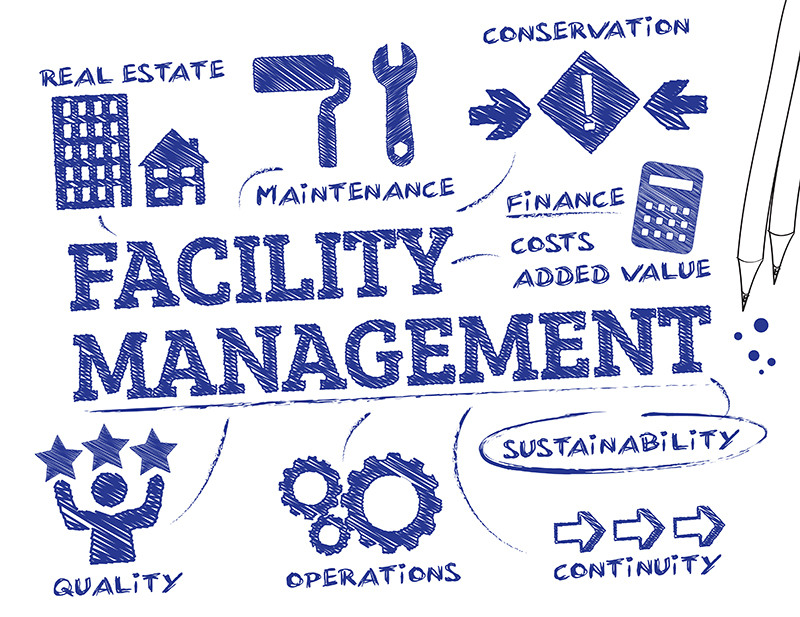Property and Facility Management Leading the ESG Charge

Graphic by Trueffelpix Shutterstock.com
With the increased importance of office interiors, property management and facility management are seen as needing to adapt to new and enhanced requirements to meet the changing demands of building users, real estate editor Gary J. Morrell writes.
Increased health and safety standards and a growing number of operation and maintenance procedures necessitate a systematic FM/PM approach. Further, in order to comply with sustainability and ESG requirements and the possibility of an exit strategy for building owners, additional capacities are needed to meet new and increased expectations from office users, along with improved benchmarking techniques.
Valter Kalaus, managing director of Newmark VLK Hungary, argues that it is not only the individual office space that has to adapt to the new requirements; the entire building has to undergo changes to incorporate such critical elements as touchless entry, increased air ventilation and filtration, less crowded public areas and so on.
“PM/FM will have to play a significant role to not only create but maintain these elements to ensure a more desirable and safer environment,” he says.
Both PM and FM have enhanced roles in the post-pandemic office environment and with further sustainability and ESG regulations and expectations from tenants and office staff.
PM can be seen as the operation, maintenance and oversight of real estate. A property manager is responsible for the daily operation of a building and, in this role, acts as a middleman between the owners and tenants.
Meanwhile, FM, integrating people, location, procedures, and technologies, is a profession that encompasses multiple disciplines to ensure functionality, comfort, safety and efficiency of the built environment. Both fields embrace employee engagement, sustainability and environmental impact, and health and wellbeing.
Popular Choice
Zsombor Barta, president of the Hungarian Green Building Council (HuGBC), argues that with safe work in focus after the pandemic, WELL certifications for internal spaces are becoming highly popular.
“Again, FM/PM plays an important role, as increased health and safety strategies need to be implemented in order to fulfill the requirements of the certification scheme,” he tells the Budapest Business Journal.
“In general, all these certifications and benchmarking standards ask for increased management strategies and implementation of best practice measures, which increases the overall sustainability. Therefore, FM/PM plays a very important role in this, and the increased demand for ESG and other sustainability standards will only encourage this,” Barta adds.
PM and FM are regarded as needing to further adapt to the increasing trend for office development in line with WELL sustainability requirements. Regina Kurucz, head of the WELL working group at the HuGBC, argues that FM should primarily serve the users, not the buildings.
The results of FM actions should be monitored with the end-user in mind, she says. For example, did changing the filters in the ventilation system really improve air quality? This question can only be answered if measurements are made regularly. Benchmarking and accountability are central to a functioning office project.
“ESG is becoming a highly important issue on the real estate market because sustainability and low carbon emissions are the baselines for financial risk mitigation and eligibility for beneficial financial conditions as well,” Barta agrees.
“We see on the market that ESG assessments are picking up. ESG assessments are important benchmarking data for financial stakeholders; therefore, PM/FM plays an important role in how a building is performing, what increased measures and strategies are in place, etc.,” he says.
Paying the Bill
How and who will finance these requirements remains to be seen. “Based on our cooperation with PMs and real estate developers, we notice that they expect FM companies to implement ESG,” says Tünde Kirschner, service manager for the office portfolio at Kraft FM, on the role of FM companies when it comes to sustainability.
“It is a key buzzword today and all multinational companies are trying to align their businesses to ESG. However, to fulfill all requirements has a huge investment demand from the FM companies, especially those with Hungarian owners. We understand its importance and will fulfill the demands step by step,” she continues.
“ESG has become a major requirement for the FM companies, but fully implementing it is very expensive. The Budapest real estate market is still very much price sensitive,” Kirschner notes.
“PM and FM are both fundamentally important players in the property market. Their part is vital, and they work hand-in-hand to push the industry towards ESG. The post-pandemic environment has accelerated the role of ESG, and we see it as an essential framework. So much so that it is in the focus of our Academia project as well,” says Csaba Zeley, managing director of ConvergenCE.
Will regard to the developing role of PM/FM, Károly Dömötör Makk, leasing manager at TriGranit, argues that smart solutions are now imperative and that creating a community among the tenants with various services is essential as well.
Finding an “A+” office building is not only about the quality of the building and location but about the services its owner offers through PM. FM wise, environmental awareness and sustainability are as important, so eco-friendly materials used for cleaning, selective waste collection, irrigation and other services are sought after by tenants.
This article was first published in the Budapest Business Journal print issue of May 6, 2022.
SUPPORT THE BUDAPEST BUSINESS JOURNAL
Producing journalism that is worthy of the name is a costly business. For 27 years, the publishers, editors and reporters of the Budapest Business Journal have striven to bring you business news that works, information that you can trust, that is factual, accurate and presented without fear or favor.
Newspaper organizations across the globe have struggled to find a business model that allows them to continue to excel, without compromising their ability to perform. Most recently, some have experimented with the idea of involving their most important stakeholders, their readers.
We would like to offer that same opportunity to our readers. We would like to invite you to help us deliver the quality business journalism you require. Hit our Support the BBJ button and you can choose the how much and how often you send us your contributions.









